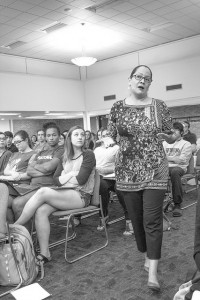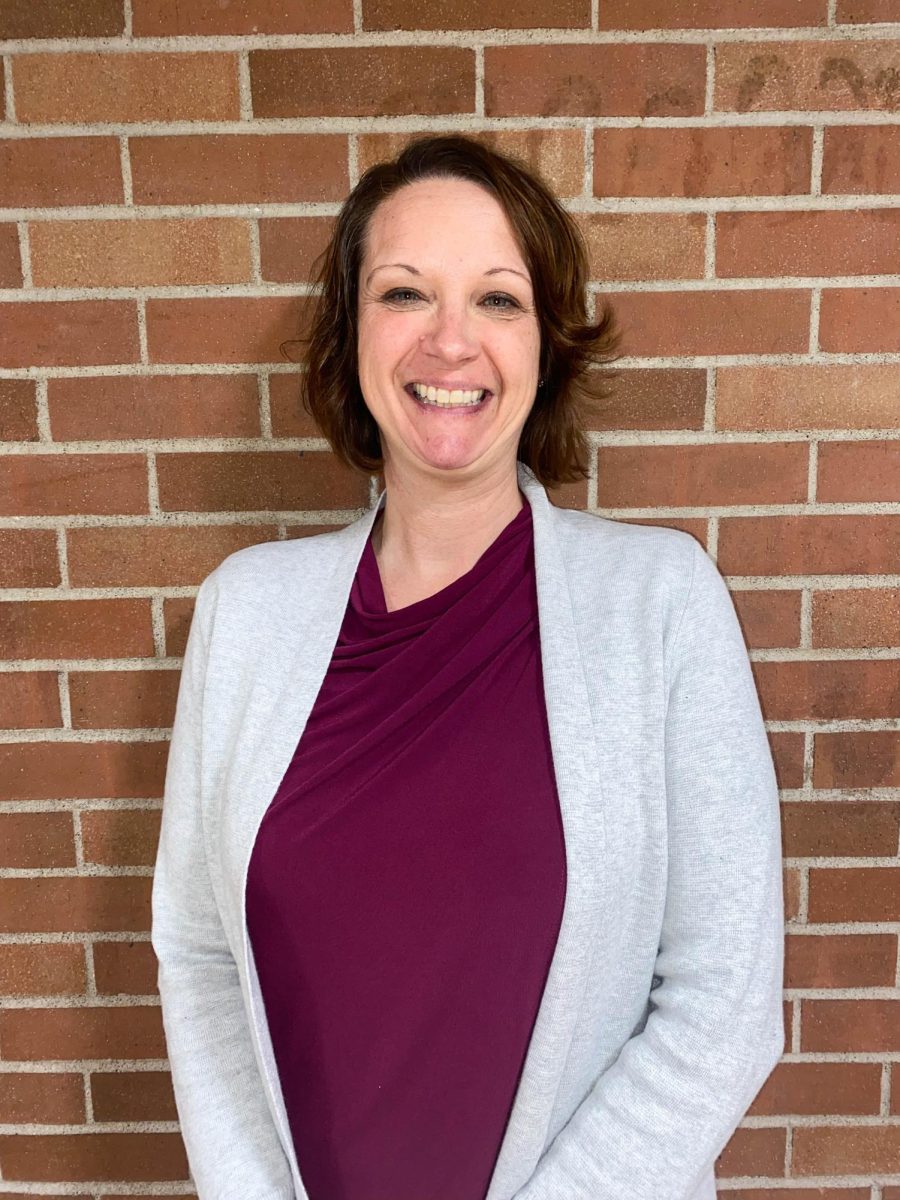
Speaker Becky Martinez presents on race and gender on Monday, Sept. 28. (Photo by Taylor Nyman)
Michaela Gaffke/Winonan
Becky Martinez spoke in East Hall on Monday, Sept. 28 about privilege and oppression.
According to Martinez, only 6.1 percent of bachelor degrees were given to Latinos in 2011 and only 8.01 percent of doctorates were given to women of color such as herself.
Martinez received her Doctor of Education in organizational leadership from the University of La Verne, a Master of Science from Colorado State University and a Bachelor of Arts in biology from the University of La Verne.
Martinez said people treat her with more value because of her doctorate.
Martinez engaged the audience in an activity where attendees spoke to people around them about their feelings and experiences of privilege and oppression. After a few moments, she asked the groups to share what they discussed.
One group said Christians have privileges in the U.S. because they get holidays off, whereas other religions have to try and take their holidays off.
Martinez also discussed marginalized groups. She said people often do not realize they are in a privileged group, only people who are not notice their oppression. Martinez said she does not notice her own privileges.
“What comes to you with the word ‘oppression?’” Martinez asked the audience.
One audience member said, “segregation of races, classes, sexual orientations and similar groups.”Another audience member said, “everyone is oppressed by other groups in some ways.”
Martinez said she “visualizes oppression as being in a dark well, and you can see the sunshine and brightness outside but you can’t get there.”
Martinez asked the audience to talk to the person sitting next to them about what privilege means to them.
One audience member explained how she was adopted from Colombia. She said after she met her birth mother she realized all the privileges she had growing up in the United States.
According to Martinez, when you are privileged you have “access to resources, social rewards and the power to shape norms and values.”
She said age, religion, education, sexual orientation, size, appearance, race/ethnicity, gender identity, class and relationship status determine if you are marginalized or privileged.
“Privileged groups have greater access to power and resources, [are] given multiple choices, [are] assumed leaders, [are] smarter, make the rules, are given the benefit of the doubt, [are] unaware of privilege, focus on how far we’ve come, and people don’t act like one person represents the whole group,” Martinez said.
She continued, “Oppressed groups have less access, [are] seen as less than, need to assemble to fit in, [are] very aware of their oppression, have the truth about their experiences questioned and often invalidated, often struggle with finding voice and speaking up to challenge, and focus on how far we have to go.”
Martinez discussed how someone can be oppressed because of his or her gender, and privileged because of their race. She said everyone fits into both oppressed and privileged groups.
Martinez suggests men talk to men about sexual assault and violence, and straight people talk to straight people about homophobia.
“We may have been born into the system, but now we have the knowledge to fix the issues of it,” she said.
According to Martinez, we have all been oppressors, as well as they oppressed.





























































